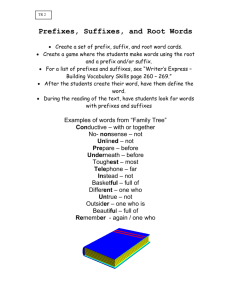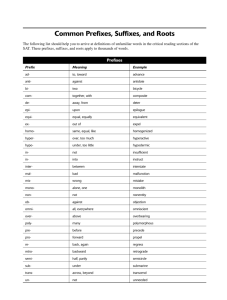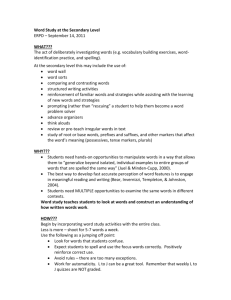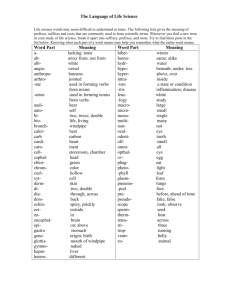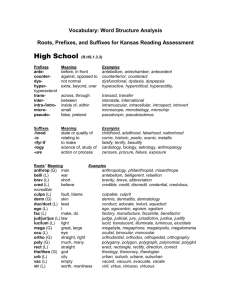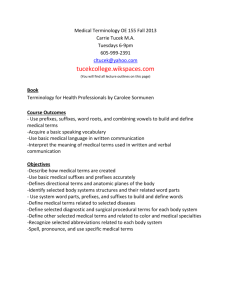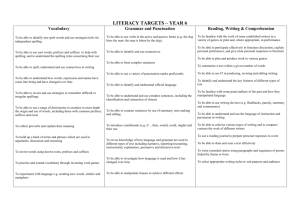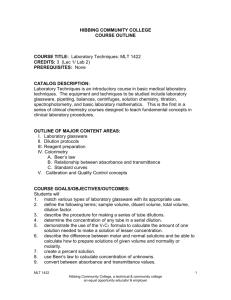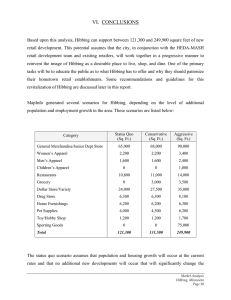ALHE 1600 - Hibbing Community College
advertisement
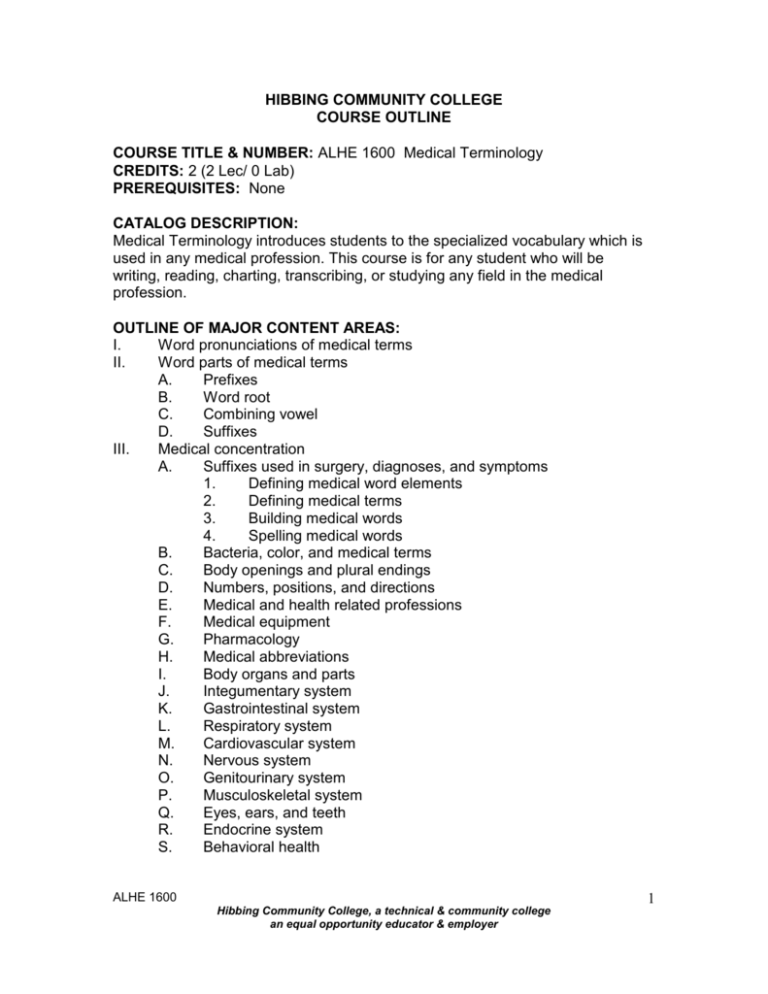
HIBBING COMMUNITY COLLEGE COURSE OUTLINE COURSE TITLE & NUMBER: ALHE 1600 Medical Terminology CREDITS: 2 (2 Lec/ 0 Lab) PREREQUISITES: None CATALOG DESCRIPTION: Medical Terminology introduces students to the specialized vocabulary which is used in any medical profession. This course is for any student who will be writing, reading, charting, transcribing, or studying any field in the medical profession. OUTLINE OF MAJOR CONTENT AREAS: I. Word pronunciations of medical terms II. Word parts of medical terms A. Prefixes B. Word root C. Combining vowel D. Suffixes III. Medical concentration A. Suffixes used in surgery, diagnoses, and symptoms 1. Defining medical word elements 2. Defining medical terms 3. Building medical words 4. Spelling medical words B. Bacteria, color, and medical terms C. Body openings and plural endings D. Numbers, positions, and directions E. Medical and health related professions F. Medical equipment G. Pharmacology H. Medical abbreviations I. Body organs and parts J. Integumentary system K. Gastrointestinal system L. Respiratory system M. Cardiovascular system N. Nervous system O. Genitourinary system P. Musculoskeletal system Q. Eyes, ears, and teeth R. Endocrine system S. Behavioral health ALHE 1600 1 Hibbing Community College, a technical & community college an equal opportunity educator & employer COURSE GOALS/OBJECTIVES/OUTCOMES: The student will: 1. identify the parts of a medical term 2. give examples of ways word parts can be combined. 3. combine vowels appropriately. 4. explain how prefixes and suffixes modify root words. 5. define selected prefixes and suffixes and give an example of each. 6. define selected word roots and give an example of each. 7. define, spell, and pronounce selected medical terms. 8. supply the correct medical term when given a definition. 9. build complete medical terms using medical prefixes, root words, combining forms, and suffixes appropriate to the term. 10. change medical terms that are singular to the plural forms. 11. use a medical dictionary with confidence. 13. use correct medical words for colors. 14. identify selected pharmacology drug classes. 15. recognize professional colleagues by their abbreviated titles and specialties. 17. describe selected pieces of medical equipment. 18. define selected medical abbreviations used by various services in a health-care facility. 22. write approved medical symbols that indicate certain medical words or phrases. 23. describe each body system and explain the primary functions of its organs. 24. recognize, build, and pronounce words that pertain to each specific body system. HCC COMPETENCIES MET: Communicating Clearly and Effectively STUDENT CONTRIBUTIONS: The student is expected to follow directions, spend sufficient time outside of class to prepare for exams, schedule exams in a timely manner, complete all assignments as scheduled and seek assistance when needed. METHODS FOR EVALUATING STUDENT LEARNING: The student will be evaluated using a variety of methods which may include: exams, written assignments, and computer assignments. SPECIAL INFORMATION: (SPECIAL FEES, DIRECTIVES ON HAZARDOUS MATERIALS, TEXTBOOK USED, ETC.) ALHE 1600 2 Hibbing Community College, a technical & community college an equal opportunity educator & employer AASC APPROVAL DATE: March 19, 2008 REVIEW DATE: March 2013 ALHE 1600: so 031908 ALHE 1600 3 Hibbing Community College, a technical & community college an equal opportunity educator & employer
